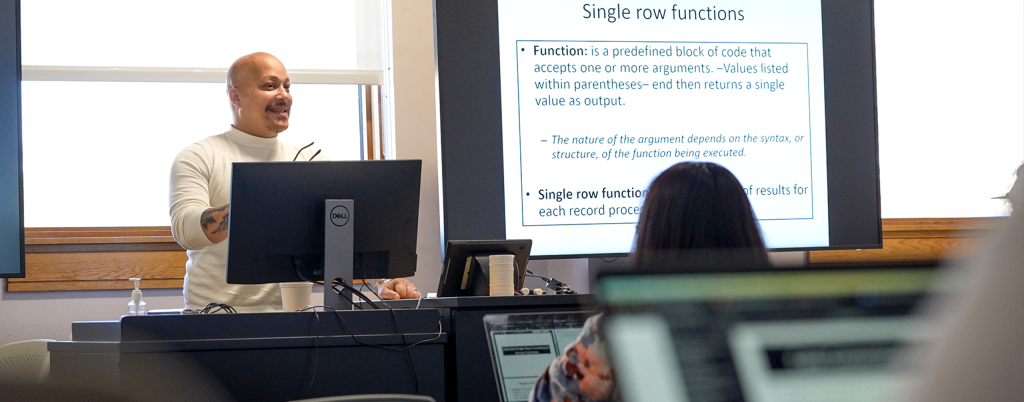
Business Information Systems & Security Management
Why BISSM?
In today’s digital world, businesses rely on cutting-edge technology to thrive—and that’s where Business Information Systems and Security Management come in!
This exciting field combines the power of business and technology to ensure that organizations operate efficiently and securely. Our BISSM students learn how to design, implement, and manage information systems that drive business success while safeguarding against cyber threats.
At UMaine, you’ll gain the skills and knowledge needed to excel in various industries, from analyzing data to developing strategies for protecting sensitive information. Whether you’re interested in cybersecurity, data analytics, or IT management, our program will prepare you for a rewarding career at the forefront of innovation.
Fast Facts
MBS Undergrads
BISSM Students
% Double Major



